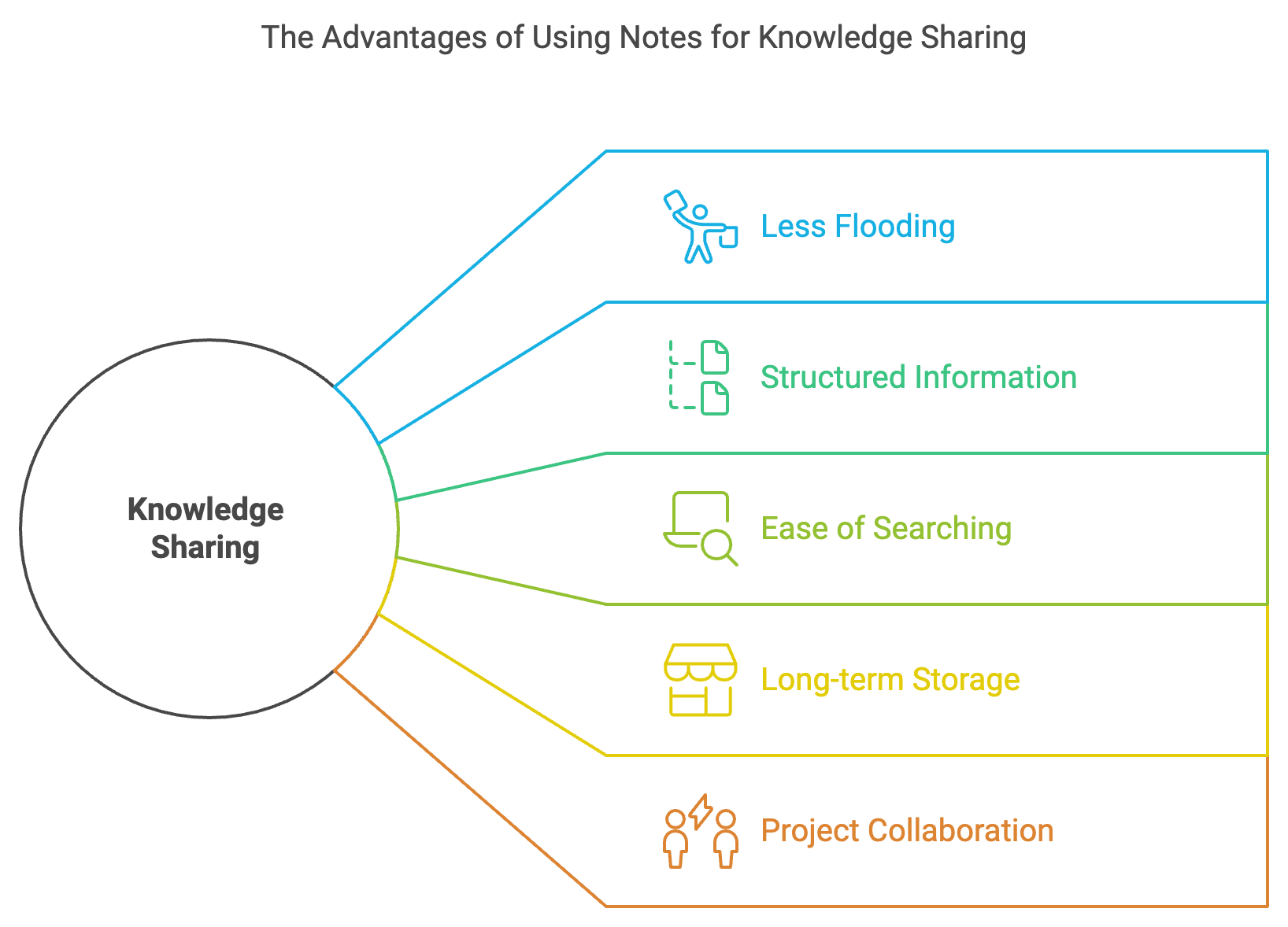Knowledge sharing is a vital process, especially for students and teams working on common projects. In the modern world, instant messengers have become the main means of communication, but they are far from ideal for structured knowledge sharing. Using notes instead of messages allows you to systematize knowledge, make it easier to find and avoid unnecessary information flooding. Let's figure out why notes are better for this.
1. Less flooding
- Groups with chats often face the problem of flooding - a stream of messages that are not related to the topic or duplicate each other. For example, in a study group on a certain subject, every third message may be a question that has already been discussed, or a request for clarification on something that can be easily found in notes. This reduces productivity, since participants have to "dig" through unnecessary information to find the essence.
- Notes present information in an organized form, and unnecessary discussions are deleted. Each participant can focus on key aspects without having to filter the message flow.
2. Structured and organized information
- Messages in the messenger have a linear structure, where each new replica displaces the previous one. As the volume of information grows, it becomes increasingly difficult to find the necessary data. In the case of notes, on the contrary, all data is stored in a structured format that is accessible for quick searching and navigation.
- For example, a note on a topic can contain main points, references, definitions and examples. New notes can be added as needed to cover different aspects of the topic. This makes notes an effective “storage” of knowledge that is easy to navigate.
3. Ease of searching and filtering
- Notes, especially when they are well structured and provided with tags associated with users, provide easy information retrieval. Chat history in messengers is often difficult to navigate: to find the necessary message, you have to scroll through hundreds of lines of text.
- Many modern note-taking apps, such as Notion, Conoted, or Evernote, support filtering by tags and categories, allowing you to quickly find specific topics or information. This approach makes learning and working on projects more productive.
- And in Conoted, you can search notes by people.
4. Long-term storage and accumulation of knowledge
- Chat messages are usually tied to a specific moment and are rarely structured in a way that serves as a long-term source of knowledge. They disappear in the flow of new discussions, and finding what you need after a few weeks or months can be almost impossible. Notes, on the other hand, are saved as long-term records that are easy to update, supplement, and revise.
- Thus, accumulating knowledge through notes allows you to create a personal or team database that can be accessed at any time. This is especially useful for projects and research that require long-term planning.
5. Ease of project work and case analysis
- Notes allow you to collaborate on projects by creating structured information on a project or case. Adding notes to a project or case simultaneously creates a clear and transparent view of who has done what, and also helps to avoid the chaos that is typical in chats.
- Instead of searching, rewriting or explaining something in a chat every time, participants can create notes with important information that will be available to everyone. This saves time and simplifies collaboration.
An example of using notes in a group is exam preparation.
- Imagine an accounting study group. Instead of sending new messages with questions every time, participants can create a group of notes for each section of the course, where key definitions, concepts and examples are collected. As they go through the course, they can update the notes with new knowledge, found resources and useful links.
- As a result, all participants have access to a complete, updated and structured knowledge base that is easy to use when preparing for the exam.
Conclusion
Using notes instead of messages in messengers is not just a way to store information. It is a structured and more effective approach to knowledge sharing. Notes help to avoid unnecessary flooding, provide structure and ease of search, and accumulate long-term knowledge. For students and team projects, this approach becomes an essential tool for productive work.
